Otherworldly Observations
A few years ago, back when this idea of the otherworld bleeding through began to make its way into Pagan/Witch discourse, I had a curious incident at the side of a river with a witchy friend. We’d been on a walk together as we often did back then in the pre-plague years, end eventually (unsurprisingly) we’d begun to “talk shop.” You see, both of us had noticed the uptick in otherworldly activity, in a similar way to how hunters are often the first to notice disease in deer.

Now, please don’t get me wrong. I’m not comparing the Other with disease here (I wouldn’t dare). I’m just saying that as magical practitioners, we tend to be among the first to notice this kind of thing.
But we were both also getting messages from multiple people. Moreover, these were often from people who didn’t ordinarily experience our kind of strangeness, and that stood out.
At some point in our discussion, I mentioned the fact that a witch’s knowledge and power was believed to come from otherworldly sources where I’m from. And I wondered what the effects of this otherworldly “bleed” would have on magic and what we humans can do with magic. Naturally (because I’m an idiot like this), I grabbed a stick and drew a sigil I use when creating portals into the sand and silt of the riverbank.
The effect was almost instantaneous: a shifting sensation that used to take more effort to achieve.
I closed it and scrubbed it from the sand almost as soon as my friend and I noticed the shift. But I’ve been musing about the changing limits of magical possibility, consensus, and opposition ever since.
John’s Rising Currents
Discourse is a funny old thing. Sometimes we can have an observation or thought sitting in the soil of our mind for a long time without writing about it. But then, something will happen to water it, and it’ll take root and grow.
(As an aside, it’s interesting how we refer to events that spark action as “precipitating events.” Soil and seeds. Soil and seeds.)

I’m a firm believer that most things have their season. And if the blog John Beckett posted this morning is anything to go by, then this subject’s season has come.
In The Currents of Magic are Getting Stronger, John Beckett makes the same observation I did at the side of that river. Ironically, he uses the analogy of a river running higher and faster to explain his observation that the “currents” of magic are getting stronger and enabling an increase in possibility/greater results. He also goes on to cautiously suggest some possible causes, and this is where I feel like I have something to add.
Magic and the Otherworldly
I’ve blogged about this before, but in the historical witchcraft traditions where I’m from, the source of the witch’s power and knowledge was otherworldly. This is where we get into familiars and hierarchy. These are all complex topics, and more than I can cover in this blog, so I encourage you to read the posts I’ve linked here if you want to go deeper. That’s not to say that what we call the “otherworldly” is the only possible source of magic and knowledge though, nor the only possible framework through which these changes can be understood.
We also cannot ignore the fact that most of the discussion on this topic is coming from US sources. I’m not saying that strange things aren’t also happening elsewhere—some of my mother’s stories from back in Lancashire have been decidedly stranger than usual of late. But we also cannot assume that just because this stuff is happening here, it’s happening everywhere.
In my opinion, an important consideration in this discussion of how widespread or localized this “trend” is, boils down to the relationship between a culture and the otherworldly beings they interact with. ( Assuming the relationship between Otherworldly beings and magic is found within those cultures in the first place.)
Fairy-like beings are found in lore pretty much all over the world, but not all cultures have responded in the same way to their presence over time. Some cultures—such as many Western European cultures—equated them with demons and/ fallen angels, destroyed their sanctuaries, and drove them out after humans converted to Christianity (LeCouteux, Claude. Demons and Spirits of the Land. Pp. 23-28, 68-80).
And I’m not saying that folk practices involving the otherworldly didn’t still exist, of course. We know they did. But as I’ll hopefully make clear in the next section, consensus (like all stories) is a powerful and often binding thing.
This process wasn’t limited to Western Europe either. If Cotton Mather is to be believed in his Wonders of the Invisible World, early colonizers in what would become the US also drove out “devils.” He even goes on to blame the apparent preponderance of witches in Salem on a counterattack by the devils, thus retaining that link between witches and the Otherworldly in his interpretation of events.
The otherworld is bleeding through, the devils are coming back, and they’re bringing us witches with them?
However in some places, maybe the Otherworld didn’t need to bleed back in from anywhere else at all.
Reality, Consensus, Possibility, and Feedback Loops
Another story now. Back in the mid-2000s, I came across an interesting interaction at a Pagan Conference in England between a gentleman from an African country (I didn’t get chance to ask him which), and a vendor who was selling these tacky, crystal-encrusted “wish books.” For her, even as someone who considered herself a witch, these books were just a bit of fun and to be commonly understood as such. There was no real expectation that writing your wishes in them would yield any concrete results. But her potential customer clearly had far greater expectations of the “wish book” than her and kept asking her in a deadly serious voice if it really worked.
As you might imagine, this became increasingly more uncomfortable the longer it went on.
To me though, as an observer, I couldn’t help but be struck by the wildly different expectations of magic that were revealed through this interaction. Again, this is something I’ve written about before, but much of what we commonly call “reality” is more accurately described as consensus. We take in far more information through our ordinary senses per second than we can even be conscious of, let alone store in our memories. Moreover, studies have shown that we’re more likely to become conscious of/retain the information that aligns with our existing beliefs and biases.
This is impossible to separate from consensus. I believe that consensus, in a sense, both delineates and limits the boundaries of possibility.
From this perspective, the more people that experience and/or interact with the strange and Otherworldly, the more the consensus that THIS DOES NOT HAPPEN IN “REALITY” is challenged. And over time if enough people start to have these experiences, the consensus of a culture shifts to include them in the realm of possibility. This in turn, creates a kind of feedback loop in which that consensus is progressively widened. (A process that is not so different from what you find in a propaganda campaign.)
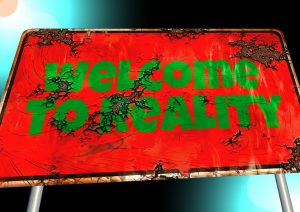
This is theory, but I would argue we have historical proof of the reverse: the binding effects of consensus.
I’ve written about this before, but we can see this in how concepts of dreaming change in Northwestern Europe after the advent of Christianity. People went from considering dreams a place where they could encounter the dead and otherworldly in a concrete way, to a state of consciousness in which people only experience nonsensical or anxiety-driven scenarios.
(Again, another way of driving out the otherworldly, I might add.)
This is all very exciting to think about, but I think we need to also be cautious here too.
The Other Side of the Coin
Within the Pagan and Witch communities, I think there is a tendency to assume that we are the only ones out there working magic. We forget that Christians also have their magic, and that a more forgiving consensus is also going to benefit them as well.
Unfortunately for us, they tend to be very much against our kind of magic, and they still largely label the Other as “demonic.” They also have an established tradition of weaponized “prayer” in the form of “prayer warriors,” who often work together in groups and are capable of a level of faith and zeal very few Pagans and Witches can muster.
Another area of concern is that I suspect a lot of the more “fringe” Christians are feeling the same uptick in activity as we are. I’m far from an expert on this subject, but I keep an eye on some of these groups as part of my omen-taking, and this is something I’ve noticed. There seems to have been an uptick in videos of “demonic possession” over the past few years. And talk of spiritual warfare against demons and witches seems to have become more common. (Here’s a recent example.) There have also been large events such as the Jericho March earlier this year. Participants of the march blew shofarim and marched around the Capitol building seven times while praying- a clear imitation of the Israelite siege of the city of Jericho. The next day was 1/6, in case you were wondering about their intentions.
If there’s anything we can learn from history when it comes to religious fundamentalists of a certain kind, it’s that this usually doesn’t go well for us. The more people believe in the possibilities of magic in general, the more they tend to blame magic (and practitioners) when things go wrong. So, the Otherworldly may be more present, and “currents of magic” may be rising and growing in strength, but they’re not without a brewing backlash.
I just hope we don’t wind up in a place where humans meet the same fate as books.

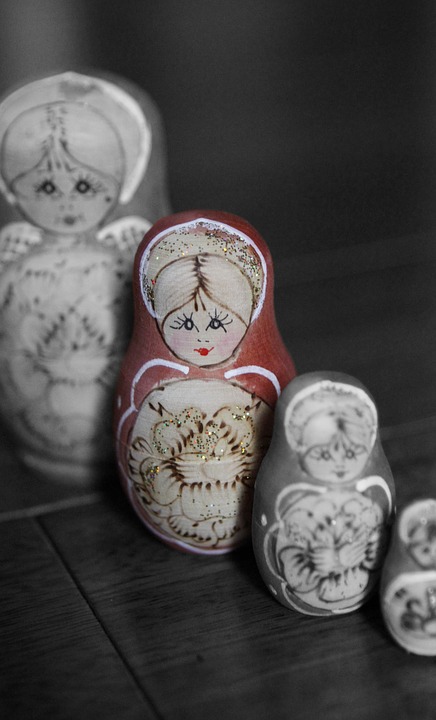
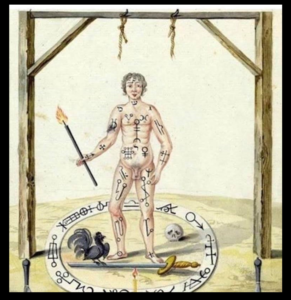 and discussion. So if you’ve got an hour or so (it’s probably going to be between 1-2 hours) on 9/15 at around 3pm, join me for a crazed exploration of the history, purpose, and ways in which magic circles can be tweaked. Can’t make it? The class will be recorded so participants can listen later!
and discussion. So if you’ve got an hour or so (it’s probably going to be between 1-2 hours) on 9/15 at around 3pm, join me for a crazed exploration of the history, purpose, and ways in which magic circles can be tweaked. Can’t make it? The class will be recorded so participants can listen later!
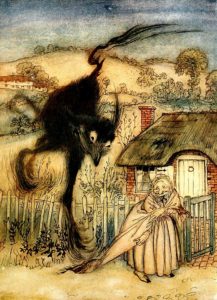
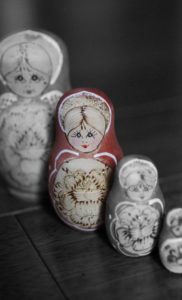 Legitimate lineages (however they’re judged) can be excellent for a number of reasons though. Because not only do you have access to a far more systematic way of learning, but you also have the safety nets of more experienced elders as well as the lineage itself. If you are interested in a tradition that has lineages then you should absolutely do the work and enter in the correct way. In some cases, it can actually be dangerous to you if you don’t.
Legitimate lineages (however they’re judged) can be excellent for a number of reasons though. Because not only do you have access to a far more systematic way of learning, but you also have the safety nets of more experienced elders as well as the lineage itself. If you are interested in a tradition that has lineages then you should absolutely do the work and enter in the correct way. In some cases, it can actually be dangerous to you if you don’t.